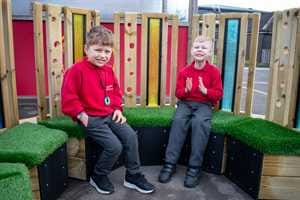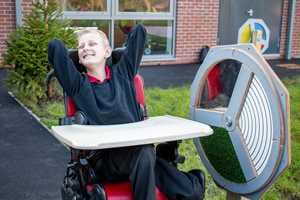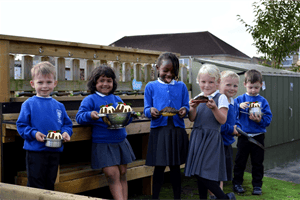
Special Educational Needs
Discover the benefits for pupils with autism of outdoor play in nature!
Larsen and associates (2018) state “Natural outdoor environments have been shown to reduce stress, enhance emotional resilience, facilitate functional and imaginative play, and support cognitive functioning” for children with Autism.
The following blog will look at the benefits of outdoor play in nature for pupils with Autism.
WHAT IS AUTISM?
“Autism is a lifelong developmental disability that affects how people communicate and interact with the world. More than one in 100 people are on the Autism spectrum and there are around 700,000 Autistic adults and children in the UK.” National Autistic Society
“Autism is a complex, lifelong condition, sometimes referred to as Autism Spectrum Disorder (ASD). The word 'spectrum' is used, because while all people with Autism share three main areas of difficulty, their condition may affect them in very different ways.” NECR116 (2013)
From the few studies done, there are three key traits Autistic people share:
- social communication difficulties (verbal and non-verbal) – taking a literal understanding of what people mean.
- social skill (interaction) difficulties – having difficulty understanding other people’s emotions.
- social imagination difficulties – having difficulty understanding and predicting people’s behaviour.
“Whilst it is widely believed that Autism is the result of a disruption to brain development, caused by a combination of genes and the environment” Nature Editorial (2011), there is still very little about Autism and how it works, thus showing that many aspects of the condition are still unknown.
“The outlook for people with Autism varies with the individual; some people can look forward to independent, fulfilling lives; others may develop complex medical, educational, and social difficulties, leading to very different outcomes” Farley et al. (2009).
As well as the above key traits Autistic people may have the following behaviours:
- focus and intense interests
- sensory sensitivity
- learning disabilities
- repetitive conduct
Some Autistic people may have one or a combination of the above traits and will change over the course of their lifetime. What is known, is that to Autistic people, the world doesn’t look the same and they find it hard to make sense of, which in turn causes them huge anxiety.
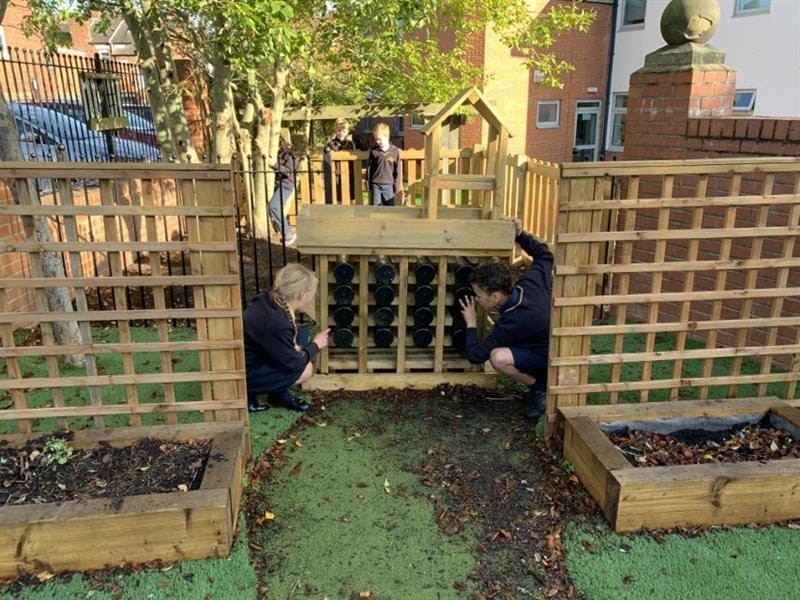
Benefits of Outdoor Play for Children with Autism
There is comparatively little research done about the effects of nature on children with Autism compared to children with ADHD. Where it shows children with ADHD who walk and play in nature have a higher attention and concentration span than those who play in built-up areas.
However, from the research that has been done, children with Autism who participate in outdoor play activities do benefit from the natural surroundings.
Autistic children may fall into one of two sensory categories:
- Hypersensitive (over-sensitive): By taking children who are hypersensitive outside and connecting them with nature by using their senses (sight, sound, and touch) allows them to adapt their over-sensitivity to different stimuli and reduce their over-sensitive sensory issues.
- Hyposensitive (under-sensitive): By taking children who are hyposensitive for walks in nature allows children with Autism to use their senses (sight, sound, and smell) to increase their sensory stimulation.
Research by Ramshini, Hassanzehad, Afrooz, and Razini (2018) shows that sensory processing problems can be due to inefficient neural pathways. However, if Autistic children are exposed to different sensory forms such as hearing, touching, smelling, and seeing in nature their neural pathways can be improved. In some cases, Autistic children may be more hypersensitive to certain senses than others. For example, they may be over-sensitive to sight and sounds but under-sensitive to smell and touch.
Another reason why connecting with nature through outdoor play is important for children with Autism is that research has shown that 70% of people with Autism have anxiety and depression, compared to 25% of the general public. By connecting with nature, research has shown to reduce anxiety and depression levels in Autistic people.
Product Spotlight
A Taiwanese study involving 15 teachers, volunteers, and parents of Autistic children was done where children with Autism were regularly engaged in outdoor play activities. The study showed there were 7 key areas of improvement in Autistic children involved (Chang and 44 Chang, 2010), these were:
- social interaction
- communication
- behaviour
- emotion
- cognition
- sensory issues
- physical activity
With improvements to Autistic children’s emotional state and cognitive ability being the biggest improvements made.
Other studies such as Blakesley and Payne (2012); Blakesley and Blakesley, (2013) have shown that children with Autism benefit hugely from outdoor play and visits to Nature Reserves, National Parks, and woodlands as they become:
- calmer
- more patient
- better listeners
- aware of the guidance given
- more independent
- more focused on tasks
- more able to share space with other
- more able to sit still and concentrate
- more willing to join in group activities
- more able to initiate play with others
- more able to initiate interaction with others
These sessions in woodland/natural areas confirm the benefits of outdoor play and that Autistic children learn better in “outside classrooms” in a more natural environment.
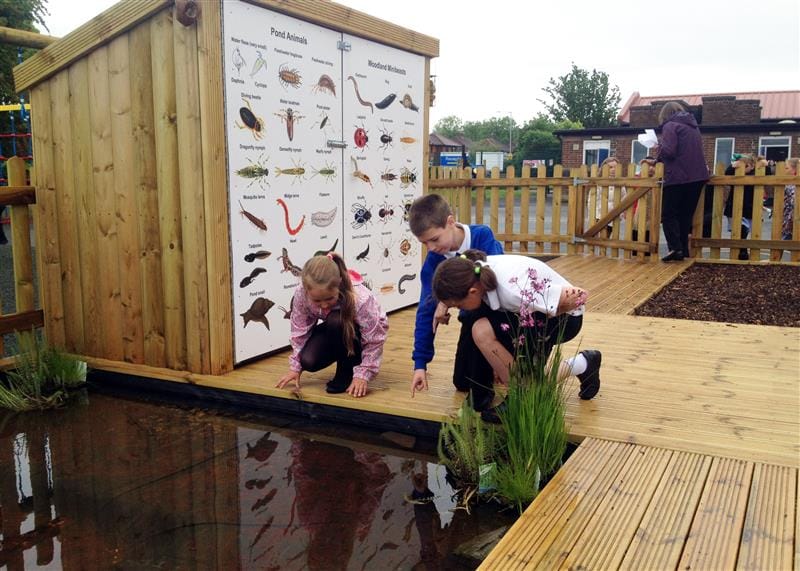
This is backed by Kaplan and Kaplan’s Attention Restoration Theory (ART) (1989) which states that “directed attention, the ability to focus on cognitively demanding tasks, critical to high-level cognitive functioning and behavioural regulation, fatigues with use but can be restored through exposure to nature.” For Autistic people, being able to focus on tasks outside their interests is difficult. ART suggests that exposure to nature can aid Autistic people’s focus and improve cognitive function and behaviour.
Ulrich’s Stress Recovery Theory (SRT) (1991) states that when people are stressed psychologically or physically, having access to natural environments will reduce their stress levels, having a positive effect on them. As noted earlier Autistic people are more prone to stress and anxiety and therefore having contact with nature could be valuable to their mental welfare.
Concluding that children with Autism benefit greatly from outdoor nature play and having an outdoor classroom in nature would be hugely beneficial to their learning.
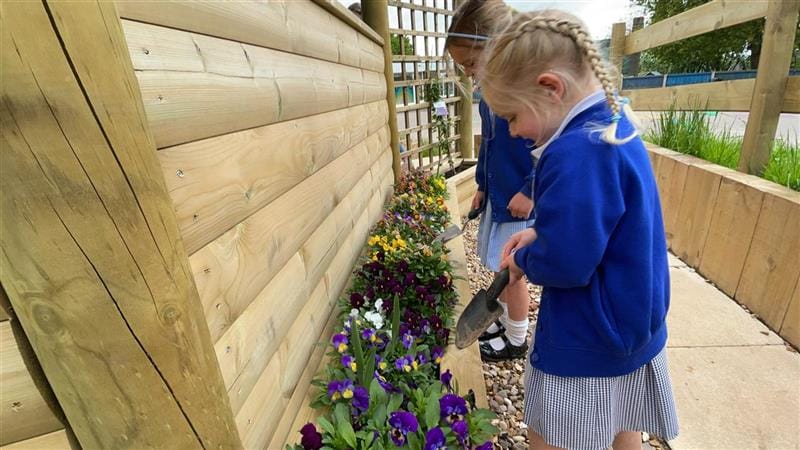
Activities to encourage pupils to engage in nature play
The NECR116 (2013) study showed that there many outdoor activities that benefit Autistic children:
- outdoor learning activities
- gardening projects
- landscape design
- summer camps
- physical exercise
- farm experiences
- animal therapy
- nature experiences for children with ADHD
Having looked at the outdoor learning activities above. This blog will look at gardening, landscape design, summer camps and physical exercise as ways in which schools can incorporate aspects of these studies into “natural” outdoor areas for children with Autism. These outdoor play zones can be created by using some of the fantastic outdoor play equipment range provided by Pentagon Play.
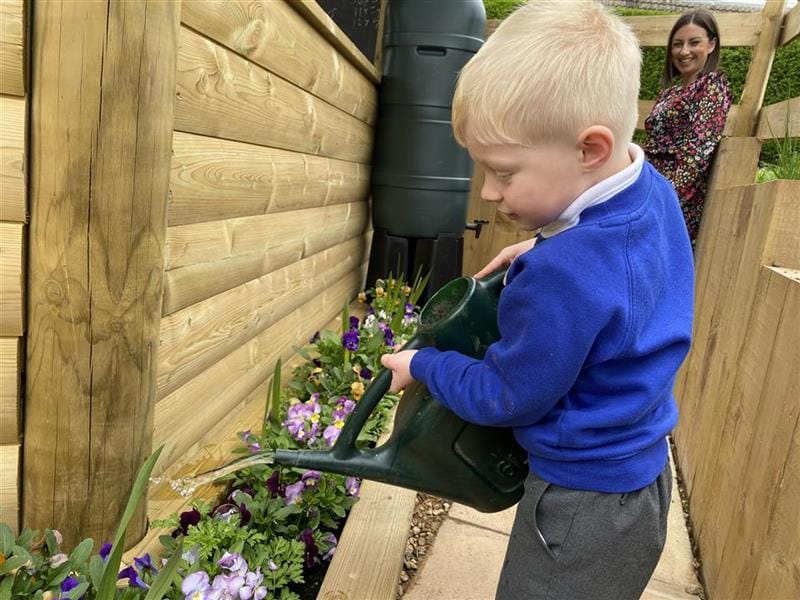
Gardening Projects
It is well known that gardening has therapeutic qualities, especially for people’s mental and physical well-being. This includes people with disabilities and who have Special Educational Needs.
Research by the RHS (2010;2012) with children with all aspects of SEN and Autism who took part in a gardening project, found two common traits among the children:
- Skill Development: showing an improvement in cognitive and physical skills as well as better perseverance and focus
- Personal Progress: showing the ability to reach set targets, improved teamwork, and improved confidence, sociability and emotional control
By working on the RHS gardening project they found that the SEN children including Autistic children benefitted greatly from being engaged with nature.
Another case study by Rickson (2010) DCSF/Growing Schools Case Study Report, shows how SEN children benefited from growing plants as they:
- enjoyed new experiences – sensory, relationship, freedom
- developed greater self-esteem – taking charge, improving confidence, taking pride in their work
- improved their learning – curriculum, vocational and life skills
How Can Pentagon Help?
Gardening can become a fun hobby at any age and should be encouraged at home and at school. You don’t need a lot of outdoor space to start to learn to plant seeds, watch them grow and look after them!
Pentagon Play has designed and built many “outdoor” nature play areas in schools to enhance SEN children’s (including Autism) daily playing and learning experiences in a fun and hands-on way.
We have a wide range of outdoor play equipment which can be used as stand-alone products or in conjunction with each other to create the perfect “outdoor” nature classroom.
When designing an “outdoor” nature play area it’s important to have zones where Autistic children can be calm for their hypersensitivity and also zones to aid with multiple sensory stimulations to revitalize and intensify their senses for hypersensitive responses. We can also include visual aids to enhance pupils with Autism learning!
A fantastic resource is our Immersive Planter. Made from “play grade” timber with twin wall HDPE plastic tunnels children can play, plant, learn and submerge themselves inside an oasis of natural wonder! Designed to allow children to crawl through the tunnels into a haven of different colours, smells and textures. Providing the perfect therapeutic, sensory and motor experience for children with Autism.
The Immersive Planter also encourage child-led and adult-led play activities from planting seeds and flowers, looking after them and watching them grow. Whilst at the same time learning about plant life cycles, enjoying sensory play by touching the soil, seeds and flowers and improving motor skills and smelling the fragrances of the flowers and herbs. It also introduces mini beasts to the Immersive Planter where children can learn about the different insects that live in the soil and which ones help pollinate the plants and flowers, adding wonder and fascination to the Autistic children’s nature play.
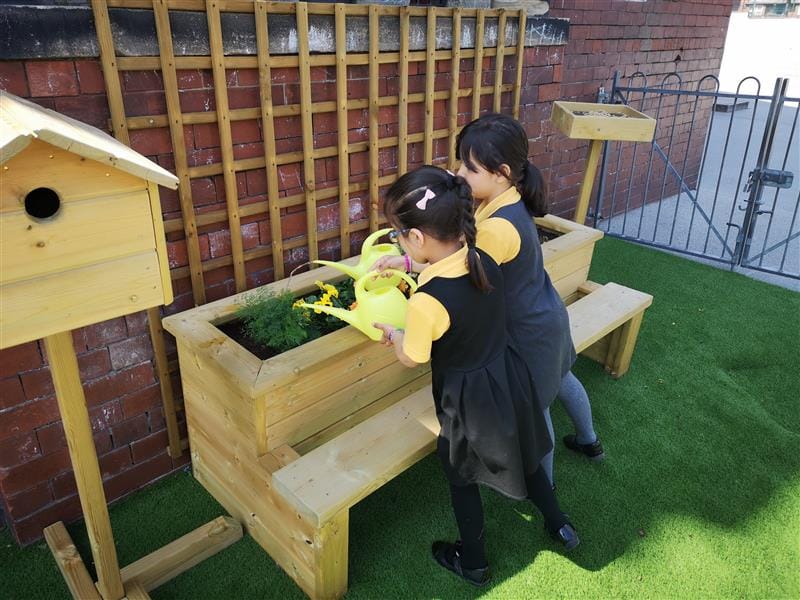
Our Planter provides a fantastic area to encourage social play. Promoting group discussions about the flowers, plants and herbs (growth, appearance, and smell). As well as just simply being surrounded by nature and letting the children’s imagination flow as they pretend to be in a meadow, farm, woodland or tropical rainforest together. Encouraging conversation, language, social skills and play flow in a magical, natural, and calm setting.
For those children who need a safe place to wind down, relax and be calm the Immersive Planter is the perfect spot to take themselves away into a natural break-out area. This is where Autism and Nature Therapy take place, using their senses, children can be at one with nature and de-stress in a safe and calm environment.
Landscape Design
Studies have shown that the landscape of outdoor play and learning used for Autistic children is important. Herbert (2003) mentions the importance of gardens which we have touched on above. She promotes the use of cave-like structures for “quiet regrouping”, seats under trees and dens to allow calm, stress-free areas.
However, she goes on to state that children with Autism would greatly profit from swings and rope chairs to promote play therapy and improve motor development. “when or if a child reaches sensory overload, the child could release his/her pent-up frustration in an acceptable way by, for example, twisting himself on a swing and then spinning and spinning to his/her heart’s content, whereas spinning in the classroom would be considered an unacceptable behaviour”.
Other natural resources that she promotes are tree stumps, fallen trees and stepping stones that would be beneficial to children with Autism when playing.
Herbert believes that senses come into play and the value of smelling, touching, hearing and tasting is very important to enhance the sensory needs of Autistic children. Listening to birds sing, the wind rustling in the trees, the sound of water bubbling, smelling fragrant flowers, touching tree bark, moss, and pebbles and tasting herbs grown are fantastic resources to enhance an Autistic child’s senses and connect them with nature.
How Can Pentagon Help?
Pentagon Play can’t provide actual tree stumps or fallen down trees but we can provide resources as close to them as possible to help pupils with autism feel like they are in a wood, parkland or forest.
Our Robinia Balance Beam and Stepping Logs are the perfect fit for any outdoor nature play area creating a trim trail for children to use. Both are made from Robinia wood, looking like tree logs and stumps and no two are the same! Pentagon Play can bring outdoor adventure into your playground… Pupils with Autism can work individually or in groups to cross the trails. Will they be crossing a river, attempting to cross a rope bridge or climbing a mountain...? Let the children’s imaginations run wild!
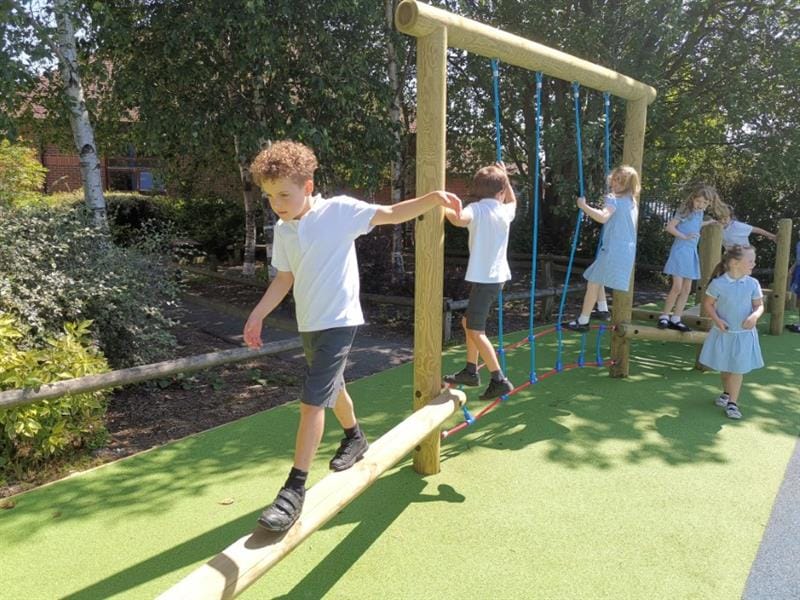
The Robinia Balance Beam is a fabulous addition to any outdoor play classroom. Being made from wood and retaining the shape of a tree, children will be eager to challenge themselves to walk along it.
Our Robinia Constant Stepping Logs provide a lovely low-level addition to a trim trail. Made of natural Robinia Timber and retaining the natural shape of a tree, these stepping logs provide the perfect trail of various heights and sizes to challenge children of all abilities. Being wibbly and wobbly children can develop their core stability, balance, coordination and confidence as they step from log to log to reach the end.
Autistic children can benefit from using the Robinia Balance Beam and Stepping Logs by working individually or in groups to cross them. Feeling a sense of pride and achievement when successfully doing so. Both are great resources for enhancing core stability and balance, as well as social and confidence building.
.jpg)
Summer Camps
Although Summer Camps are not a UK thing like they are in the USA. We can take some key findings from the benefits of a case study done in the South West of England by Fox and Avramidis (2003) for Autistic children and implement them into our everyday school lives. In the study children with Autism were involved in walking activities, climbing and outdoor rescue. The findings were that Autistic children improved in behaviour, self-esteem, learning, cognitively and socially. Describing outdoor education as “a powerful, albeit underused tool in the education of young people deemed to experience emotional and behavioural difficulties” Fox and Avramidis (2003).
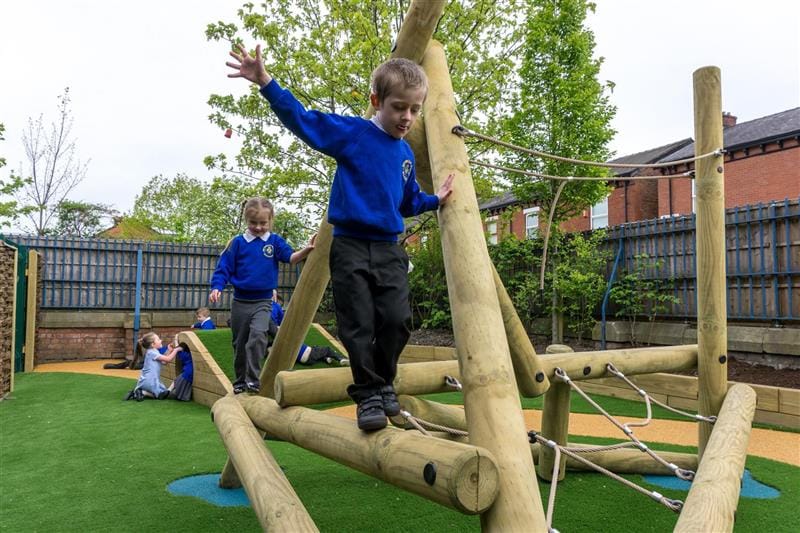
How Can Pentagon Play Help?
With this in mind, why not add to your outdoor nature play zone an element of climbing and walking to promote positive affirmations in Autistic children?
Our Harter Fell Climber With Platform and Climbing Net would be a great addition to any outdoor play area. Allowing Autistic children to grow socially and linguistically but also to understand turn-taking and sharing.
This exciting low-level climbing frame provides a safe environment for Autistic children to be adventurous and work individually or in groups. Whatever their physical needs are, there is an area for everyone to play on. A perfect place for children with Autism to use their imagination by playing with others as they walk over canyons, swing through forest trees, or climb huge trees! Whilst at the same time growing in confidence and independence, improving gross and fine motor skills, upper and lower body strength, core stability, balance and coordination.
The Platform provides the perfect place for Autistic children who need shaded areas out of the harsh sunlight. Whether they are underneath creating dens or within the main structure there is a place to relax or play.
.jpg)
Physical Exercise
“Physical activity programs for youth with Autism produced moderate to large benefits in a variety of important areas. These include improving motor skills, skill-related fitness, social functioning, and muscular strength and endurance.” Autism and Exercise: Special Benefits | Autism Speaks
.jpg)
Landscaping, Summer Camps, and gardening include physical exercise for Autistic children. Encouraging Autistic children to be physical via walking, balancing, climbing, digging etc. A study by Todd and Reid (2006) showed that when Autistic children walked/jogged over a six-month period they became more independent, more motivated, physically fitter, and better at self-monitoring and had improved psychologically.
What we have to remember is that pupils with Autism need to start small and then grow with the activity. The aim is to give access to regular and fun activities like walking to school, walking the dog, and going to the park to play.
How Can Pentagon Help?
To keep Autistic children moving why not incorporate one of our fantastic Playground Markings which helps children with Autism both physically and visually?
- Nature Trail: Full of colour and visual markings of animals and insects Autistic children can walk through the trail and learn about the world around them.
- Activity Trail: A fun trail to help Autistic children of all abilities to improve strength, movement, coordination, flexibility, balance and gross motor skills. The visual marking will enhance an Autistic child’s trail by showing them the different stages.
- Daily Mile Track: Clear visual markings showing a mile track will enhance all children’s lives including children with Autism allowing them to set goals and achieve them on a daily basis. E.g. aiming to walk a mile a day and then increasing the distance or improving the time it takes to do so.
- Freestanding Modular Play Equipment: Playground Equipment, like the Rockies, can provide children with a multitude of ways to improve a variety of physical skills. Children with autism may find the modular aspect of the equipment interesting and fun, helping them build vital cognitive skills.
Pentagon Play provides a wide range of outdoor play equipment that can enhance children with Autism’s everyday outdoor play learning. For more information on our range of outdoor play equipment click on www.pentagonplay.co.uk
.jpg)
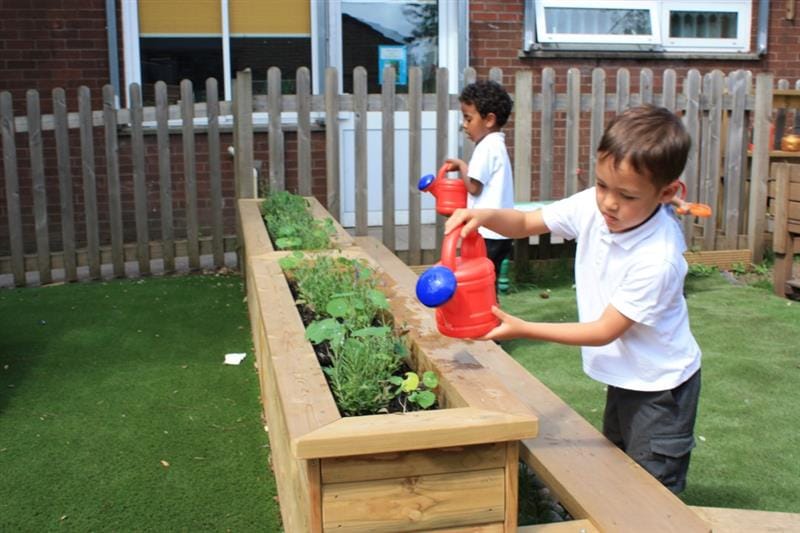
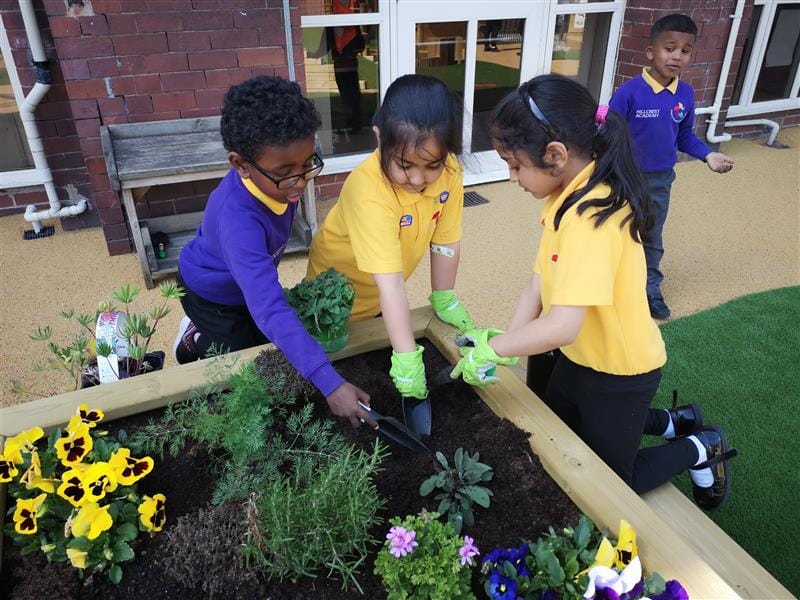
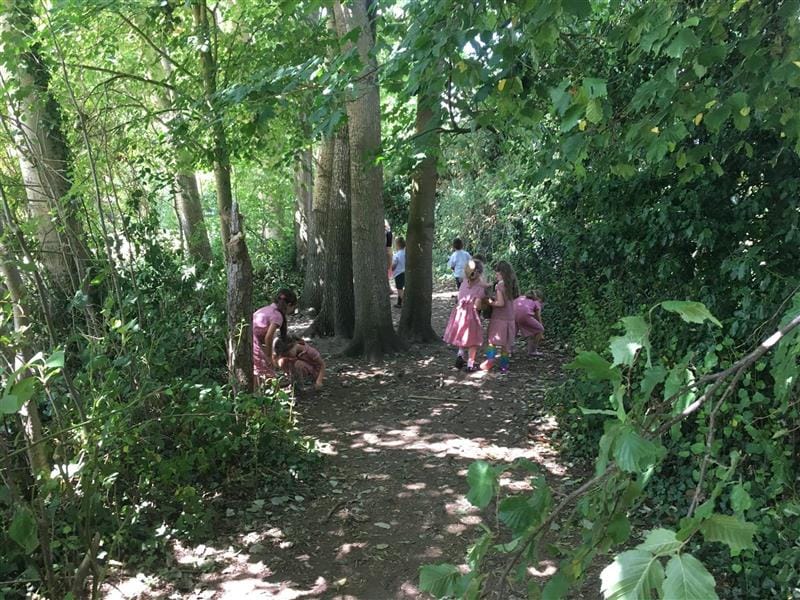
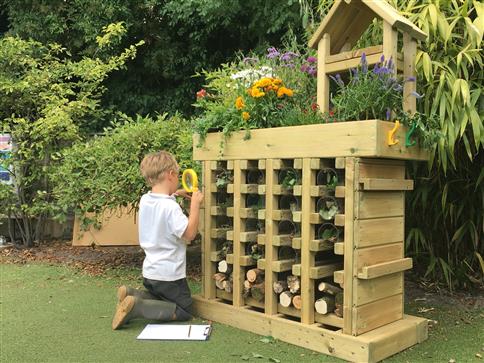
.JPG)
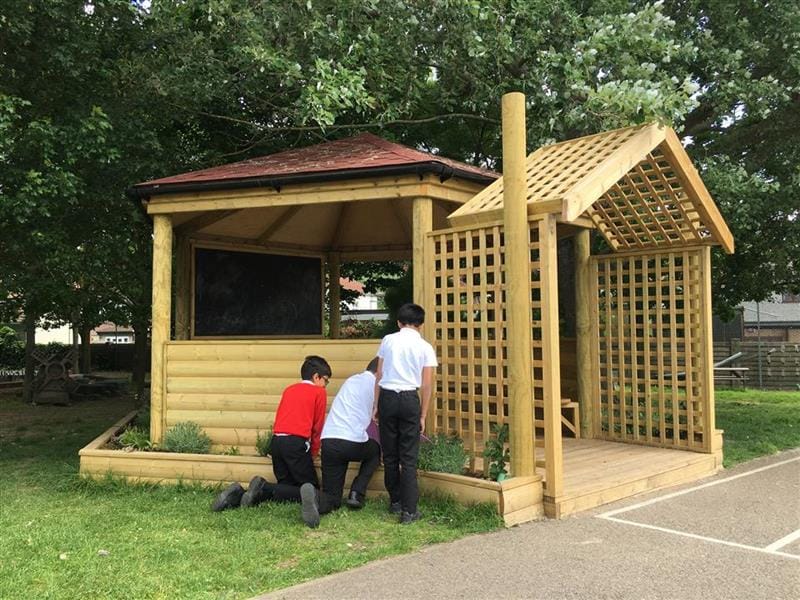
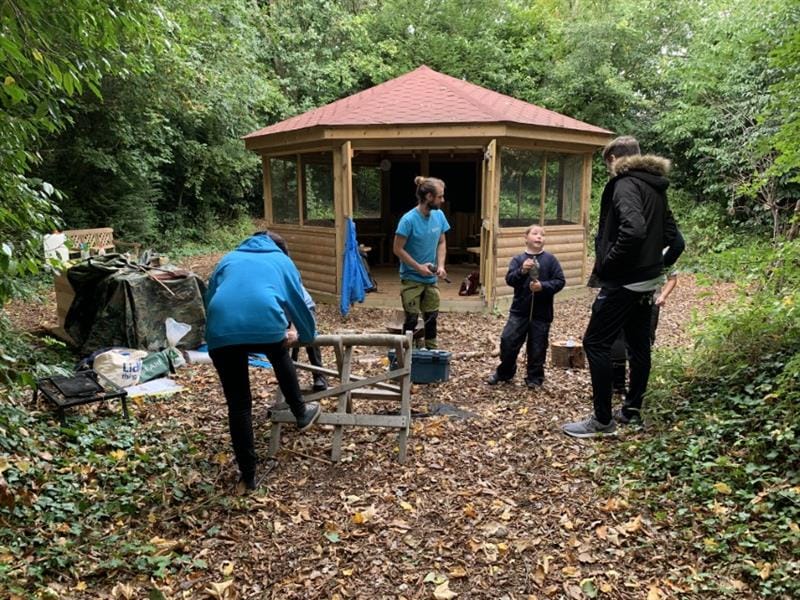
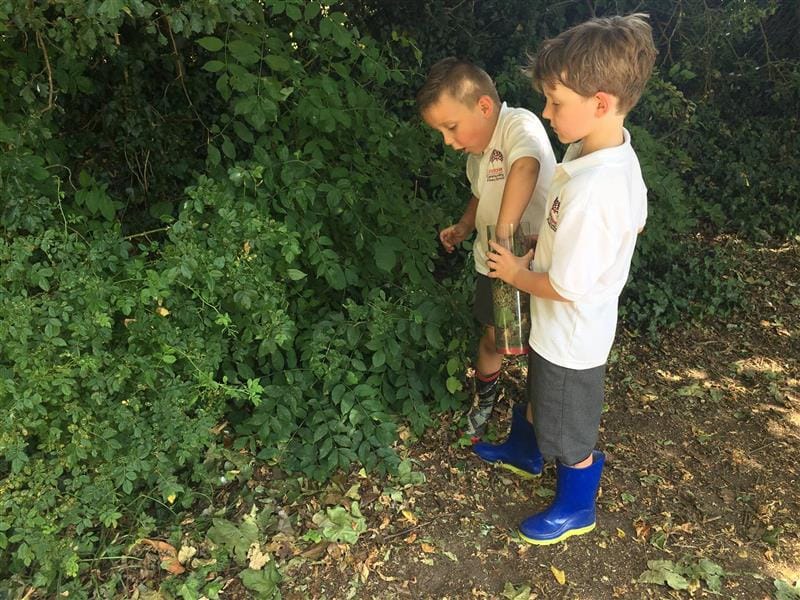
.JPG)

